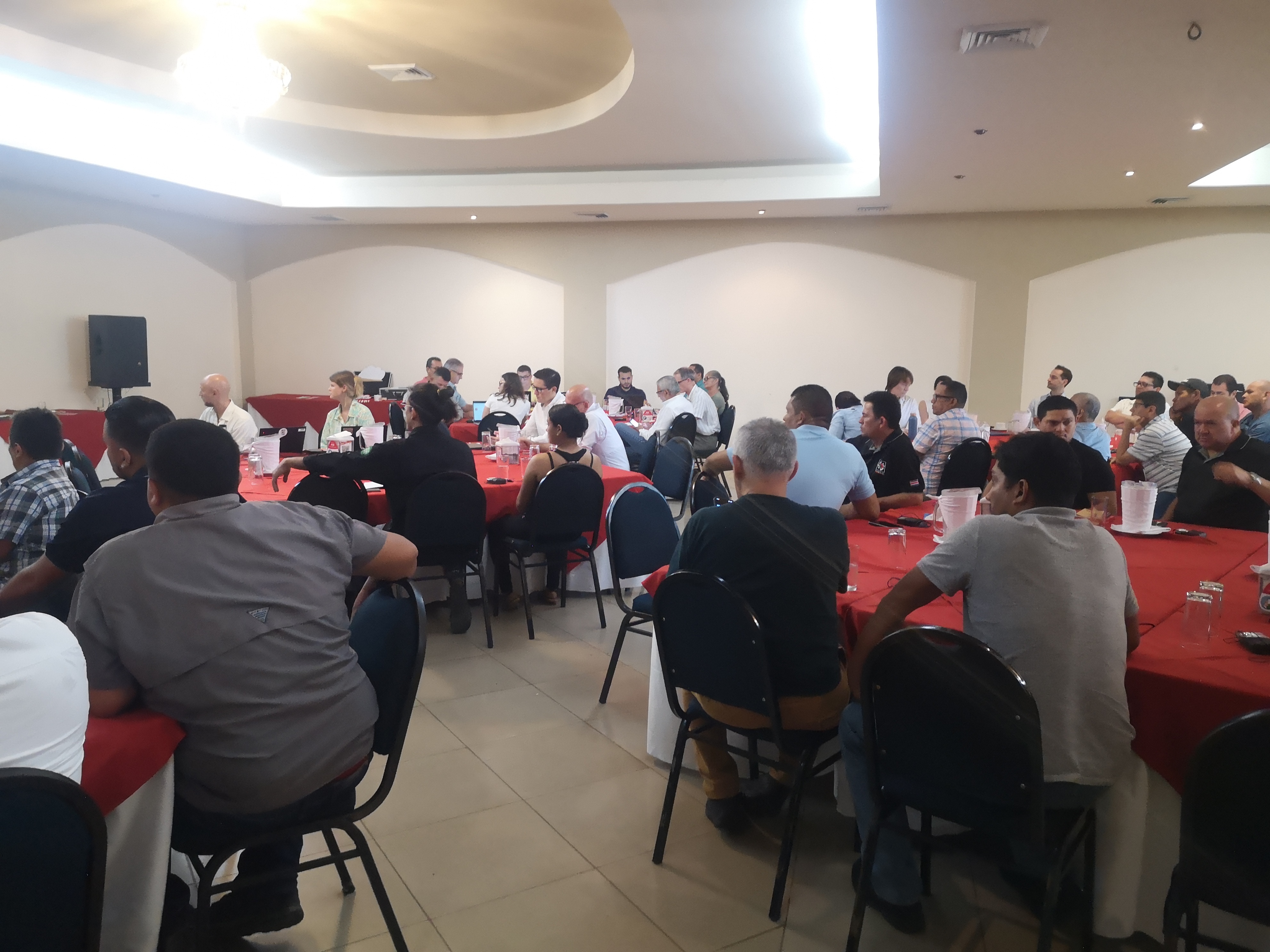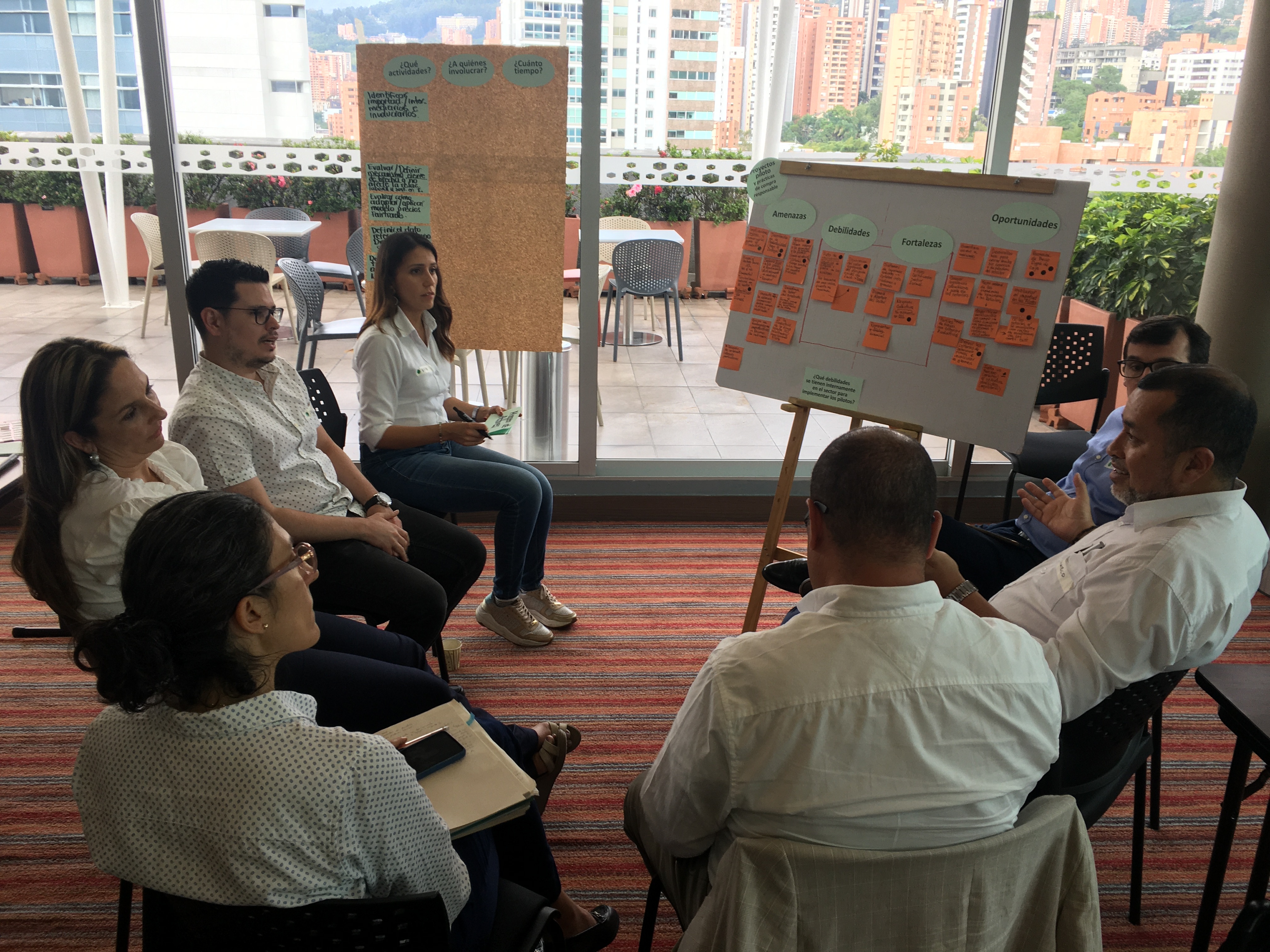Successful launch of the EH-AG in Costa Rica and Colombia
The German retail sector's working group on living incomes and wages in the banana sector has been officially active in Costa Rica and Colombia since autumn 2023. At the project kick-off events on 18 October in Medellín, Colombia, and on 6 November in Guápiles, Costa Rica, banana sector stakeholders from both countries met for a constructive exchange.
After Ecuador, the German retail working group is now launching its living wage project in two other important banana-producing countries: Costa Rica and Colombia. Ecuador has already shown that a project of this scale can only be successful in the long term if all relevant stakeholders are involved. At the start of the project, hybrid events were initially held to present the project. On 18 October (Colombia) and 6 November (Costa Rica), retail representatives from the working group and the regional GIZ teams met with key representatives from the banana industry live and in colour.
Energy kick-off event in Colombia
" We are delighted to have been involved from the beginning in the planning for the implementation of the project in Colombia. This is something we have not experienced before with similar projects, as in many cases the voice of the producer has not been taken into account", said Carolina Jaramillo from the Colombian exporter and producer Unibán. Most of the other participants in Medellín, where around 30 representatives of the banana sector gathered, had similar sentiments. The aim of the day was to clarify open questions about the project, to discuss key topics in groups and to start planning the activities for project implementation.
Various topics were at the centre of the discussion: the Anker method for calculating living wage benchmarks, the IDH Salary Matrix, the pilot projects of the German retail working group and the supply chain laws at German and European level. Stakeholders identified many areas for improvement, particularly with regard to the calculation of benchmark: for example, producers and workers should be more involved in data collection and local legislation should be taken into account. The approach of the German retailers' working group, represented by Sally Roach and Felix Strauß from ALDI SOUTH Group, was generally well received. Emerson Aguirre from the producers' association AUGURA emphasised: "We are convinced of the concept of living wages and have been working with the union on this issue for more than 30 years. The call of the German retailers to work together, to highlight and to acknowledge the topic is very important. We very much welcome this, to study the local context, to contribute and to receive feedback that contributes to improving our working model, or that contributes to the improvement of other Latin American models. It is important for us that local contexts are taken into account and that our efforts are listened to and valued".
Enthusiastic discussion at the Costa Rican kick-off event
In Guápiles, Costa Rica, the workshop was organised in a similar way with around 60 representatives of the banana sector. In addition to the topics mentioned above, the participants also exchanged views on sustainable purchasing practices. The topic of employee representation in particular was discussed intensively. Everyone agreed that involvement is important, and the main topic of discussion was who should take part in the dialogue. "The topic of employee representation is a crucial pillar of our project; we see the involvement of trade unions and associations as a decisive lever for achieving living wages across the industry," said Stephan Jermendy from ALDI SOUTH Group, who travelled to the meeting. "I am therefore delighted that we are able to discuss this topic intensively with stakeholders in the production countries."
The next steps
The results of the workshops will now be compared with background studies on the local context of the banana sector, which GIZ is conducting in both countries. The German retail working group will present these results in follow-up workshops in April 2024 and, in this context, will also fine-tune the ideas for activities that have already been developed and translate them into a work plan.

